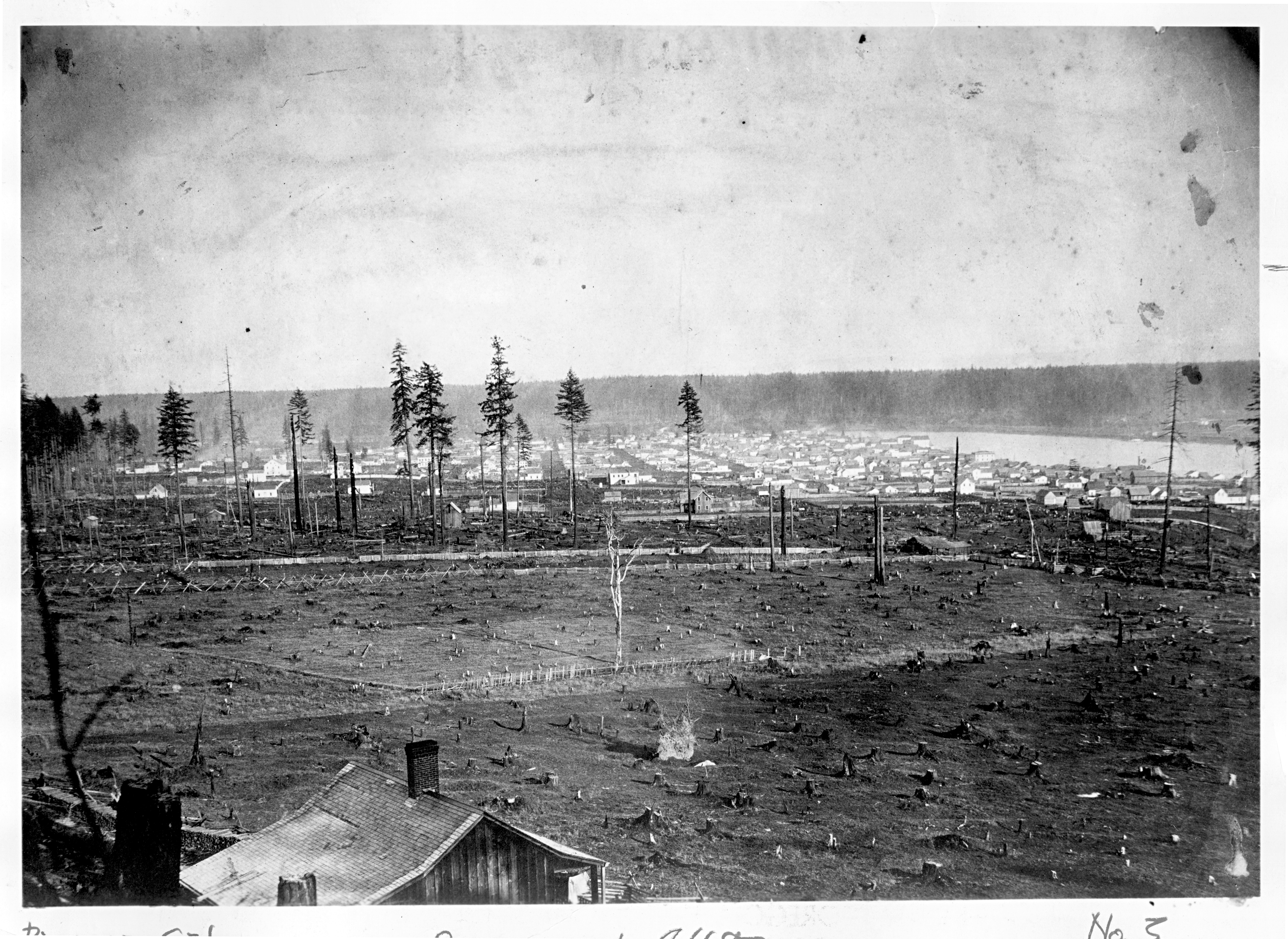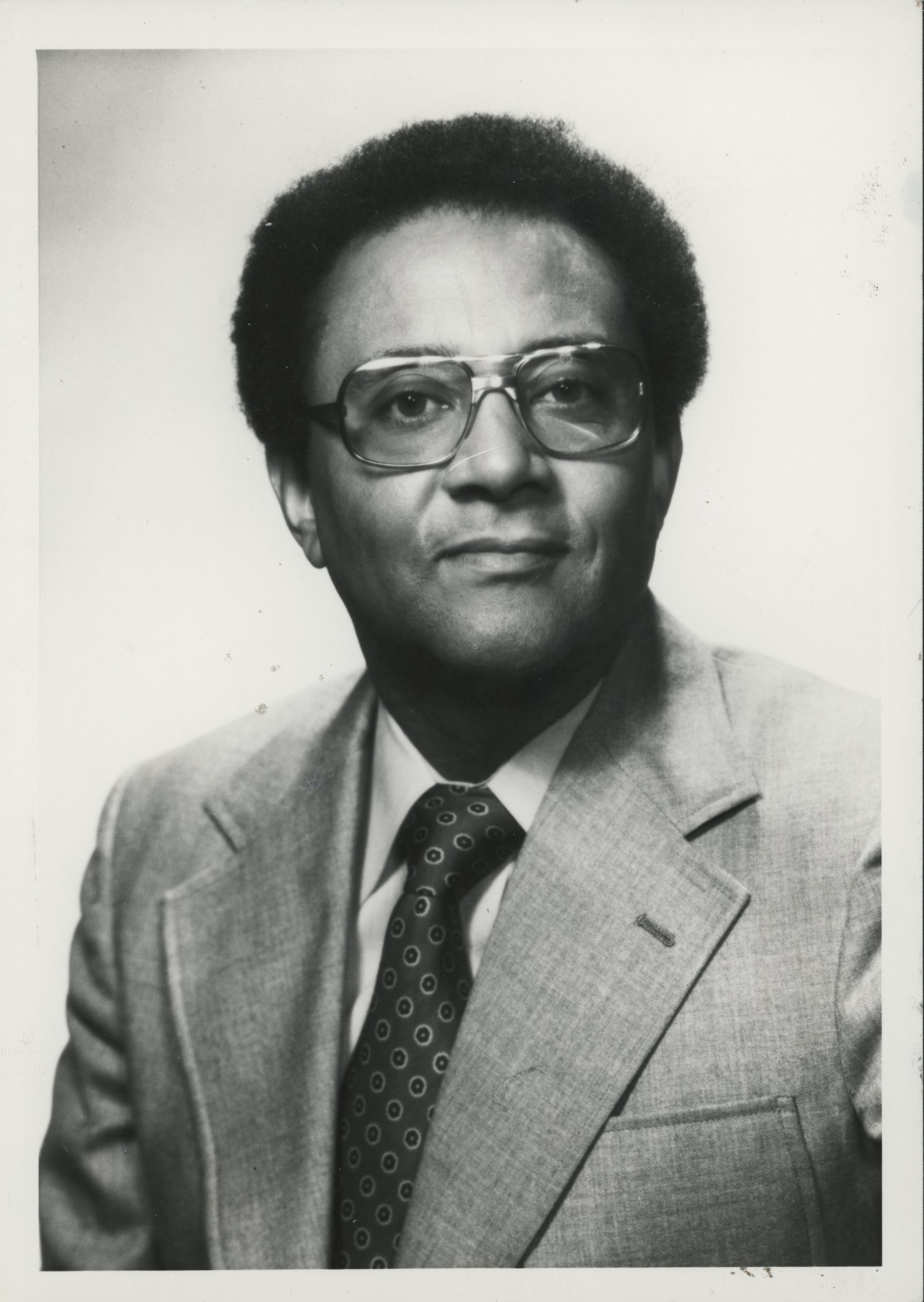Charles Moose was the first African American to hold the position of Chief of Police in Portland and, at age thirty-nine, one of the youngest. He was also the only chief with a doctoral degree. During his tenure from 1993 to 1999, Portland became known for the effectiveness of its community policing strategies, including two demonstration projects that led to a reduction in crimes related to drugs and gangs. Moose left Portland to become Chief of the Montgomery County Police Department in Maryland, where he headed the search for the Beltway Snipers in 2002.
Charles Alexander Moose was born in New York City on August 11, 1953. His family moved to Lexington, North Carolina, where his father, David, a biology teacher, and his mother, Helena (Fuller), a nurse, raised their three children in a middle-class Black neighborhood. Charles’s education began in a segregated elementary school and continued in Lexington's newly integrated high school. He studied history at the University of North Carolina, Chapel Hill, and received a bachelor of arts degree in 1975. During his last semester at Chapel Hill, he put his plan to pursue a law degree on hold when an opportunity arose to join the Portland Police Bureau.
The federal Law Enforcement Assistance Act and Law Enforcement Education Act provided federal funds to law enforcement agencies to encourage them to hire a better educated and more diverse workforce. The Portland Police Bureau had struggled to find suitable candidates close to home, so they used the funds for a recruiting trip to North Carolina, where they met Moose. He took the PPB entry exam as part of a course in criminology and was offered a patrol officer position upon graduation.
Moose later explained his decision to become a police officer: “I took the job, thinking only that it would give me a perspective on the police that would be useful for my work as a defense attorney. It was a look at the inside.” That he would get that experience by moving to one of the whitest cities in the nation required reassurance from his father, who reminded him “there is no place in which everyone will look like you.”
Moose began to patrol the streets of Portland in the fall of 1975. He was promoted to sergeant in 1981, to lieutenant in 1984, to captain in 1991, and to deputy chief in 1992. During that time, he attended Portland State University, where he earned a master’s degree in public administration in 1984 and a Ph.D. in urban studies in 1993. Throughout his career, he served as a member of the Air National Guard. Moose had a son from his first marriage and a stepson from his marriage to Sandra Herman-Moose.
Moose’s approach to community policing was shaped in part by his experience in the segregated South. As a young Black man, he had learned to regard the police with caution, and he witnessed the same caution in Portland, where Black residents distrusted the police because of seemingly arbitrary under-enforcement when help was needed and over-enforcement when infractions involved young Black men. Police community relations were fraught in other ways as well, including complaints of officer misconduct and charges that the Bureau’s Internal Investigation Division was biased in favor of officers. A successful ballot initiative led to the creation in 1982 of the Police Internal Investigations Auditing Committee, one of the first such bodies in the nation.
On June 28, 1993, Moose was named Chief of Police by Mayor Vera Katz, who supported community policing and wanted someone who had earned the respect of Portland’s ethnic and racial minorities. Moose was convinced that trust and the willingness to work together would evolve once police officers and citizens got to know each other. He was willing to lead by example, and he and his wife bought a house in Portland’s King neighborhood, a high crime area in the Albina district. The purchase received national attention, and U.S. Attorney General Janet Reno and Mayor Katz visited him there in 1994. Not everyone was happy about the chief’s presence, and he was accused of having helped gentrify the neighborhood.
Moose left Portland in 1999 to lead the Montgomery County Police Department in Maryland. During his tenure, he led a multi-agency task force whose work led to the arrests of the so-called Beltway Snipers, who killed ten people in 2002 in the Washington, D.C., metropolitan area. When Moose contemplated writing a book, Montgomery County executives told him he could not be chief and also profit from a book about doing his job. He resigned on June 28, 2003, and later that year published Three Weeks in October: The Manhunt for the Serial Sniper, co-authored with James Fleming. In 2006, he trained at the Honolulu police academy and took a job as patrol officer. "It's been a long time since I've worked the street,” he told the Honolulu Star-Bulletin, “but it's exactly what I want to do over the next several years."
During his career, Moose was praised and criticized. “People didn’t necessarily agree with all of his policies,” Willie Halliburton, a Portland patrol officer during the 1990s, said, “but they respected him. He was a man of his word, a man of integrity.” While in Portland, he received a Community Leadership Award from the FBI in 1995 and the William French Smith Award for Outstanding Contributions to Cooperative Law Enforcement in 1998.
In retirement, Moose moved to Palm Harbor, Florida, where he died from a heart attack on November 25, 2021. In 2023, the Portland Police Bureau created the Charles Moose Community Service Award to be given annually to an officer or community member whose efforts keep Chief Moose’s dedication to community-oriented policing alive.
-
![]()
Charles Moose, Portland.
Oregon Historical Society Research Library, Pat Pollak, bb013832
-
![]()
Charles Moose visits residents of Iris Court Housing, Portland.
Oregon Historical Society Research Library, bb014323
-
-
![]()
Mayor Vera Katz, Charles Moose, and Atty. Gen. Janet Reno, Portland, 1994.
Oregon Historical Society Research Library, Julie Keefe, bb013800
-
![]()
Charles Moose.
Courtesy City of Portland
Related Entries
-
![Penny Ledyard Orazetti Harrington (1942–2021)]()
Penny Ledyard Orazetti Harrington (1942–2021)
On January 24, 1985, Penny Ledyard Orazetti Harrington was sworn in as …
-
![Portland]()
Portland
Portland, with a 2020 population of 652,503 within its city limits and …
-
![Richard “Dick” Bogle (1930–2010)]()
Richard “Dick” Bogle (1930–2010)
Dick Bogle was a multi-talented Oregonian and humanitarian who dedicate…
Map This on the Oregon History WayFinder
The Oregon History Wayfinder is an interactive map that identifies significant places, people, and events in Oregon history.
Further Reading
"Community Policing in Portland." City Club of Portland, report, May 1, 2003.
Fujimori, Leila. "Moose joins HPD." Honolulu Star Bulletin, 2006.
"The State of Portland's Police." City Club of Portland, July 23, 1999. (Video)
Moose, Charles A.; Fleming, Charles. Three Weeks in October: The Manhunt for the Serial Sniper. Penguin Publishing Group, 2004.








